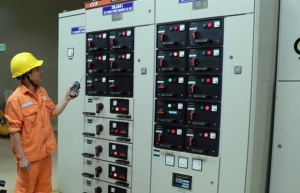Deloitte Vietnam releases retail report for Vietnam
 |
Vietnam’s economy looks set for a rapid rebound in 2022. This promising outlook is expected to have positive knock-on effects on its retail sector – which is itself in the midst of several significant transformations.
To help retailers better understand Vietnam’s retail sector in the new context, Deloitte Vietnam releases the Retail in Vietnam 2022: Omnichannel Takes Off report, which explores some of these transformative trends and opportunities that they present for retailers to innovate and develop multi-fold strategies.
One trend that stood out was the accelerated normalisation of omnichannel retail on the back of the pandemic. Today, most Vietnamese consumers in urban areas are used to omnichannel purchasing, making purchases via brick-and-mortar stores, brand websites, and third-party instant messaging platforms and food delivery apps – toggling between them to find the right delivery slot or promotional deals.
The report also explores the impacts of COVID-19 on non-grocery and grocery retail segments in Vietnam and the ways in which their market dynamics have evolved over the last two years. While the report highlights the sales by type and how the locations of retail stores and shopping malls affect purchasing behaviours in the non-grocery retail segment, Deloitte experts have an in-depth analysis of the grocery retail segment.
Consumers who typically purchased from traditional grocery retailers have shifted their consumption to other grocery retail channels such as convenience stores, supermarkets, and hypermarkets, with many noteworthy changes.
Convenience stores develop omnichannel presences: Amidst the pandemic, many convenience store chains quickly moved to develop their omnichannel presences, and expand their presences on food delivery platforms. Some players have also built and launched their own proprietary mobile applications to engage more directly with their customers. Regarding the market share, foreign chains dominate Vietnam’s convenience store sub-segment, with four of the top five brands owned by foreign multinationals.
Hypermarkets grow in popularity for bulk buying and assortment: During the pandemic, the hypermarkets sub-segment had sought to capitalise on the shift to digital channels by expanding their online presence, both in terms of e-commerce and mobile commerce. In summary, foreign multinationals continue to dominate the hypermarkets sub-segment, with many players able to leverage their unique product assortments as a competitive advantage.
Supermarkets capitalise on private label products and smaller formats: the supermarkets sub-segment had benefited from the shift in consumer expenditure away from traditional grocery retailers during the pandemic. Moreover, as consumers become increasingly price-conscious, supermarket chains have also been able to capitalise on this with the attractive pricing of their own private label products.
Vu Duc Nguyen, head of Vietnam Consumer Industry at Deloitte shared, “In the year ahead, Vietnam’s retail sector is expected to experience a rapid rebound. We believe that at least some of the new omnichannel habits will become permanent as consumers grow accustomed to the convenience that they offer. Looking ahead, we also expect two other developing trends to continue to play out in the retail sector, with wide-ranging, long-term knock-on effects. They are accelerated uptake of digital wallets and non-cash payments; and growth in the wholesale e-commerce segment.”
 | Buy Now Pay Later - The future of retail payment? Foreign and Vietnamese companies are placing large bets on the buy now, pay later approach in Vietnam, thanks to a significant increase in the use of the payment method, but the sector still presents certain dangers. |
 | MoIT drafts mechanism to adjust average retail power price The Ministry of Industry and Trade (MoIT) is drafting a Prime Minister's Decision on the mechanism for adjusting the average retail electricity price. |
What the stars mean:
★ Poor ★ ★ Promising ★★★ Good ★★★★ Very good ★★★★★ Exceptional
Related Contents
Latest News
More News
- Masan Consumer names new deputy CEO to drive foods and beverages growth (February 23, 2026 | 20:52)
- Myriad risks ahead, but ones Vietnam can confront (February 20, 2026 | 15:02)
- Vietnam making the leap into AI and semiconductors (February 20, 2026 | 09:37)
- Funding must be activated for semiconductor success (February 20, 2026 | 09:20)
- Resilience as new benchmark for smarter infrastructure (February 19, 2026 | 20:35)
- A golden time to shine within ASEAN (February 19, 2026 | 20:22)
- Vietnam’s pivotal year for advancing sustainability (February 19, 2026 | 08:44)
- Strengthening the core role of industry and trade (February 19, 2026 | 08:35)
- Future orientations for healthcare improvements (February 19, 2026 | 08:29)
- Infrastructure orientations suitable for a new chapter (February 19, 2026 | 08:15)

 Tag:
Tag:






















 Mobile Version
Mobile Version